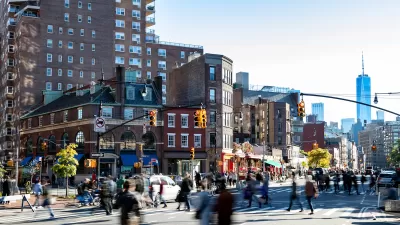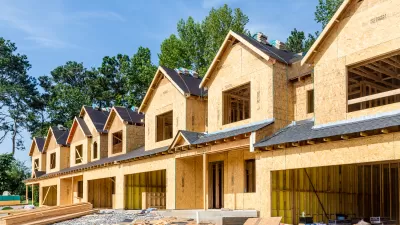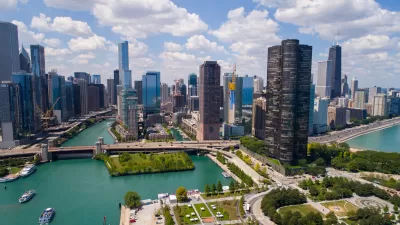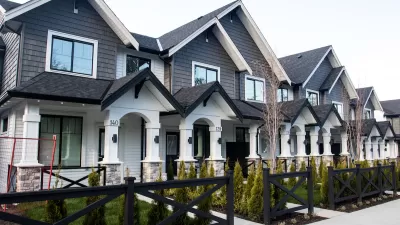A new argument has appeared in the ongoing debate about parking requirements. A university in a college town objected to reduced parking requirements on the grounds that it would make the city too attractive to developers.

Eric Jaffe provides a dispatch from the parking wars—this time in the college town of Champaign, Illinois, which recently debated relaxed parking requirements for residential development. Supporting the case for reducing parking requirements in the city were the usual arguments about lower housing costs and reduced auto dependence.
Opposing the parking reductions, however, were not the typical arguments about increased traffic and strain on public parking spaces. Jaffe explains:
"Instead, the University of Illinois at Urbana-Champaign 'respectfully opposed' the measure on the grounds that sites around town would suddenly become more attractive to private developers. Such sites—current parking lots the clearest example—would never pencil out into profitable building projects under the old rules, but became instantly viable without parking requirements. That bothered the university, which hoped to buy the sites on the cheap as the campus expanded."
Jaffe summarizes that argument by saying that the university is basically objecting on the basis that reduced parking requirements would make the city too nice. But looking at it from the university's point of view, new development potential for lots around campus conflicts with the university's master plan for expansion.
The article provides more details about exactly how Champaign's new parking policy would work, calling on Ben LeRoy of the Champaign planning department to describe the goals of the policy and the early positive response from the development community. LeRoy also tells Jaffe about how the city plans to work with the university to achieve their mutual goals in the future.
FULL STORY: An Unusual Objection to Less Parking: It Will Make Our City Too Nice

Pennsylvania Mall Conversion Bill Passes House
If passed, the bill would promote the adaptive reuse of defunct commercial buildings.

Planning for Accessibility: Proximity is More Important than Mobility
Accessibility-based planning minimizes the distance that people must travel to reach desired services and activities. Measured this way, increased density can provide more total benefits than increased speeds.

Fair Housing Cannot Take a Back Seat to ‘Build, Baby, Build’
If we overlook fair housing principles in the plan to build US housing back better, we risk ending up right back where we started.

LA Metro Board Approves New 710 Freeway Plan
The newest plan for the 710 corridor claims it will not displace any residents.

Austin’s Proposed EV Charging Rules Regulate Station Locations, Size
City planners say the new rules would ensure an efficient distribution of charging infrastructure across the city and prevent an overconcentration in residential areas.

Making California State Parks More Climate-Resilient
A recently released report offers recommendations for keeping state parks healthy and robust, including acquiring additional land for conservation and recreation.
City of Costa Mesa
Licking County
Barrett Planning Group LLC
HUD's Office of Policy Development and Research
Mpact Transit + Community
HUD's Office of Policy Development and Research
Tufts University, Department of Urban and Environmental Policy & Planning
City of Universal City TX
ULI Northwest Arkansas
Urban Design for Planners 1: Software Tools
This six-course series explores essential urban design concepts using open source software and equips planners with the tools they need to participate fully in the urban design process.
Planning for Universal Design
Learn the tools for implementing Universal Design in planning regulations.


























